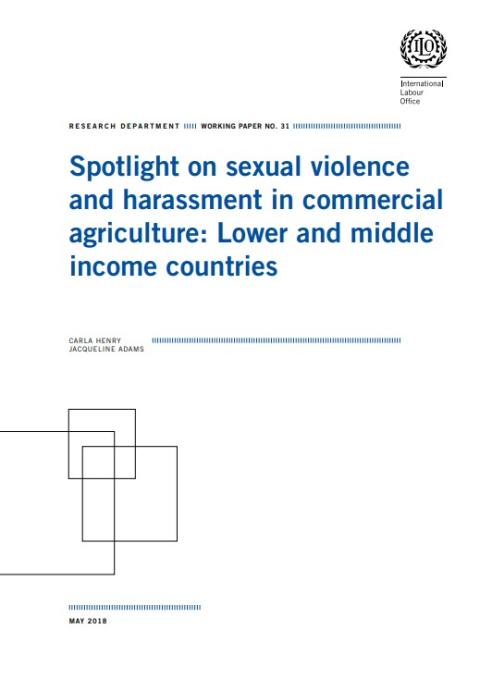- Briefing paper
- 1 May 2018
Spotlight on sexual violence and harassment in commercial agriculture: Lower and middle income countries
- Author: Carla Henry, Jacqueline Adams

Sexual violence and harassment among commercial agricultural workers is widespread, perhaps even pervasive, throughout the world. This paper summarizes information from a synthesis of research conducted on sexual violence and harassment in four commercial agriculture contexts; one in Africa, one in Asia, and two in Latin America.
The studies indicate that non-standard forms of work, including temporary work and informal work, are key factors in creating power differentials for perpetrators to carry out sexual violence and harassment against women workers. Sexual violence and harassment occurs in commercial agriculture when also combined with cultural norms that tend to tolerate such activities, and structural environments that distance perpetrators from accountability. Supervisors and more senior workers are most often the perpetrators in part because they have the power to (1) offer, deny or discontinue work; (2) lower the income that workers receive; (3) make the workers’ conditions very difficult; (4) undermine the workers’ social standing; and/or (4) offer advantages to the workers. These forms of power also threaten workers into silence so that they do not report. Agricultural workers’ vulnerability to sexual harassment is compounded by limited labour law coverage and poor labour inspection services extending to agricultural workers. Employers of agricultural workers are also found to lack effective preventative policies and practices.
The results of this review point to much needed actions in commercial agriculture to end entrenched sexual violence and harassment:
- Conduct additional studies that credibly quantify the incidence and document the circumstances enabling the sexual violence and harassment in commercial agricultural work, particularly in lower and middle income countries.
- Upgrade women’s terms of employment and work arrangements to match those of men, and advance women into supervisory positions within commercial agricultural work forces.
- Expand the scope of collective bargaining to extend negotiations to represent temporary and casual workers;
- Extend legal protections to non-standard workers and workers in agriculture and tighten legislation and enforcement of working conditions within commercial agriculture, including for contracted workers.
- Promote women into leadership roles within unions and NGOs and support women-organized means for monitoring and reporting incidents in commercial agricultural work.
- Expand workplace training and awareness raising to change attitudes and behaviour. Extend this awareness outreach to rural communities.
- Countries / Regions:
- Global
Blog
5 January 2026

Report
3 December 2025

Report
28 November 2025


Content is loading...